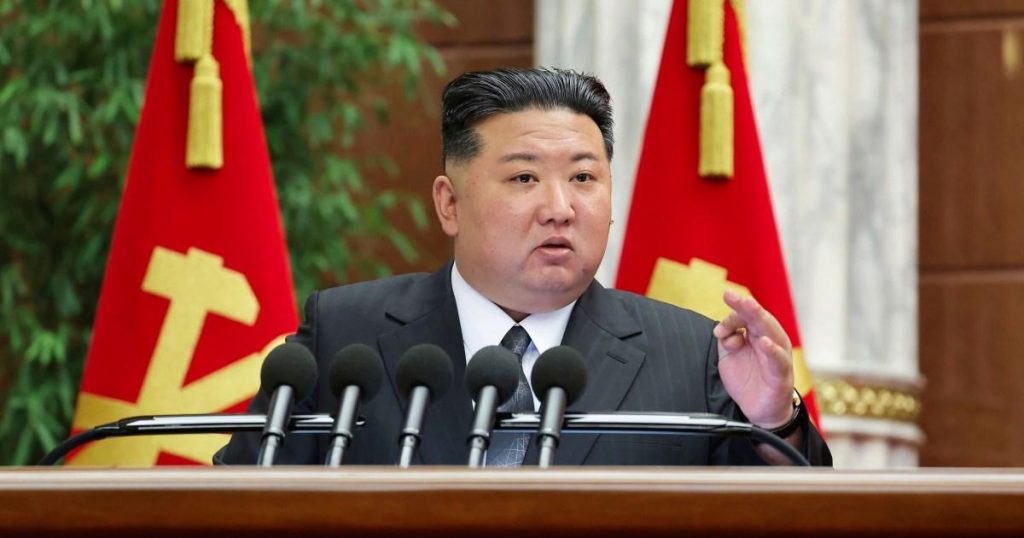Kim Jong-un’s Cultural Clampdown: Hot Dogs, Divorces, and Western Influence
North Korea, under the leadership of Kim Jong-un, has implemented a series of stringent measures aimed at curbing what the regime perceives as the detrimental influence of Western culture. These measures extend from seemingly trivial matters like culinary preferences to fundamental societal structures like marriage. One of the most recent edicts targets the consumption and sale of hot dogs, a food item deemed excessively Western. This ban reflects a broader effort to maintain ideological purity and prevent the infiltration of foreign values, which the North Korean government views as a threat to its authority and societal stability. The consequences for violating this decree are severe, with offenders facing the grim prospect of internment in the nation’s notorious labor camps, known for their appalling conditions and human rights abuses. The ban on hot dogs exemplifies the regime’s anxieties surrounding cultural infiltration, particularly from South Korea, a nation with close cultural ties and a starkly contrasting political and economic system. The popular dish Budae-jjigae, a spicy noodle soup incorporating hot dogs or Spam, had gained widespread popularity after its introduction from South Korea. Now, its sale has been prohibited, illustrating the lengths to which the North Korean government will go to control the cultural landscape.
The crackdown extends beyond culinary preferences to the personal lives of North Korean citizens. Divorce, a practice increasingly common in many parts of the world, has been deemed “anti-socialist” by the North Korean regime. Couples seeking to dissolve their marriages now face the harsh penalty of up to six months in labor camps, a stark contrast to the legal processes and societal norms surrounding divorce in other countries. This punitive measure reflects the regime’s view of divorce as a destabilizing force that undermines the collective good and challenges the state’s control over family structures. The increased penalties for divorce, which previously only affected the individual initiating the proceedings, underscores the government’s determination to discourage marital dissolution and reinforce traditional family values, which it considers integral to maintaining social order. The rise in divorce rates, attributed in part to the economic strains of the COVID-19 pandemic and subsequent lockdowns, has seemingly alarmed the authorities, leading to this more draconian approach. Despite the threats of public humiliation and expulsion from the Korean Workers’ Party, the divorce rate remains a concern for the regime.
Kim Jong-un’s rule, since his ascension to power in 2011, has been marked by a series of eccentric and often oppressive regulations. These directives, often seemingly arbitrary and disproportionately harsh, reflect a broader pattern of controlling every aspect of citizens’ lives, from their cultural consumption to their most personal decisions. The ban on Christmas celebrations, under threat of execution, exemplifies this trend of suppressing religious and cultural expressions deemed incompatible with the state ideology. This control extends to all forms of expression and association, effectively isolating North Korean citizens from the outside world and limiting their access to information and alternative perspectives. The regime’s focus on maintaining ideological purity and suppressing dissent has resulted in a highly controlled environment where individual freedoms are severely restricted.
The recent public appearances of Kim Jong-un with his daughter, Kim Ju Ae, have fueled speculation about the future leadership of North Korea. While the exact nature of her role remains unclear, her presence at official events has been interpreted by some as a signal of her potential designation as his successor. This speculation highlights the dynastic nature of power in North Korea and the ongoing efforts to ensure the continuity of the Kim family’s rule. The implications of such a succession for the future of the country, its policies, and its relationship with the international community remain uncertain. However, it underscores the importance of understanding the internal dynamics of the North Korean regime and the factors that shape its decision-making processes.
The international community continues to observe North Korea with concern, particularly regarding its human rights record and its nuclear ambitions. The reports of harsh punishments for seemingly minor infractions, such as consuming hot dogs or seeking a divorce, highlight the severity of the regime’s control over its citizens and its disregard for fundamental human rights. The restrictions on cultural expression and access to information further exacerbate the isolation of the North Korean population from the outside world. These actions underscore the challenges of engaging with North Korea and the ongoing need for international efforts to promote human rights and encourage greater openness within the country.
The contrasting images of Kim Jong-un celebrating the New Year with his daughter, seemingly positioning her for future leadership, and the harsh realities faced by ordinary North Korean citizens highlight the stark disparities within the country. While the ruling elite enjoy privileges and consolidate their power, the majority of the population endures severe restrictions on their freedoms and faces dire consequences for even minor transgressions. This contrast underscores the urgency of addressing the human rights situation in North Korea and the need for continued international pressure to promote positive change and improve the lives of its people. The continued isolation and control exerted by the North Korean regime pose a significant challenge to regional stability and international efforts to promote human rights and denuclearization. The reports of harsh punishments for seemingly trivial acts serve as a stark reminder of the oppressive conditions faced by the North Korean people and the ongoing need for international attention and action.











